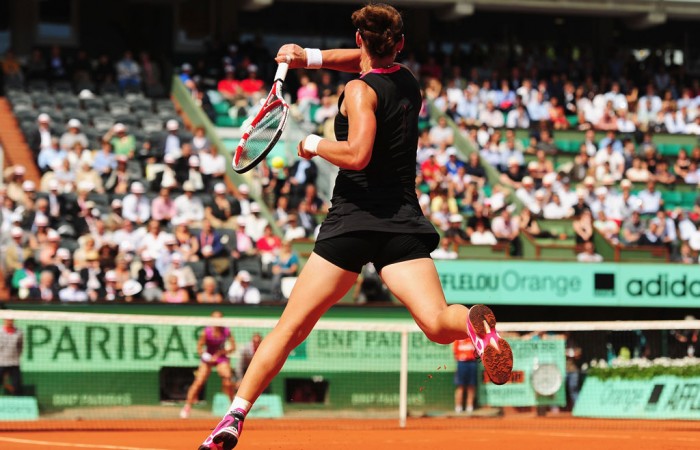Seven tips to help you win on clay
Winning on clay requires a strong body and even stronger mind. Fed Cup Squad Coach Shannon Nettle lists his top seven tips to help you triumph on the dirt.
Melbourne, 21 May 2013 | Shannon Nettle | Australian Tennis Magazine

Legs and core are the foundation for every shot. It’s essential to have the strength and balance to slide into the shot, drive through contact and maintain balance to ensure good recovery.
It is much harder to finish points quickly on clay, whether it’s with the serve or ground strokes. A typical clay court match lasts much longer than a match played on a hard or grass court. Being able to finish a match physically strong can be the difference between winning and losing. Having the ability and discipline to concentrate for extended periods of time is also crucial.
The easiest place to hit a tennis ball is between the hips and shoulders. As the ball gets above shoulder height it is tougher to generate power and control the ball. A higher bouncing clay court exposes a player’s ability to play the ball above shoulder height.
Each point on a clay court can be an absolute battle. Being able to get on with it and play a tough point no matter what happened in the last is essential.
Andy Roddick possessed a monster serve and was one of the game’s greatest competitors, yet he only won nine singles matches in ten French Open appearances. Expect more returns to come back and be ready to start constructing points from both offensive and defensive situations.
It’s tough to swing the momentum back on clay. A combination of physical fatigue and the inability to win easy points means that once momentum is lost, it takes a huge effort to turn the match around.
Grip is everything when trying to stand up on a slippery clay court. The best clay court shoes have herringbone soles, which Dunlop Volleys have always been made with. In Australia buying other branded shoes with this grip can be difficult. Look for the zigzag pattern on the sole of the shoe as that offers the best grip available.
Polyester strings
There are many great types of polyester strings available on the market today. Not only do they offer good spin control but they usually last longer as well. The one downside is they are usually a little tougher on the arm than traditional gut or synthetic strings.
Racquet
Most of the racquets made today come with either 16 or 18 mains, which are the strings that run from the top of the racquet to the throat. A racquet with 16 mains will usually produce more spin than a racquet with 18 mains but if breaking strings is already a problem, it might be best to stick with a racquet that has 18 mains or to try a thicker (1.30) string.
For more tips from the pros on how to improve your game, check out the latest edition of Australian Tennis Magazine.
After a playing career of more than five years, Shannon Nettle coached several top Australian players, on the ATP Tour, including Peter Luczak and Chris Guccione, before becoming the Men’s Coach for Tennis Australia’s AIS Pro Tour Program. He is currently a Fed Cup Squad Coach and based in Melbourne.